More pro-regime rallies as Iran declares 'sedition' over
Trump,backing Iranian protesters, tweeted,'You will see great support from the United States at the appropriate...
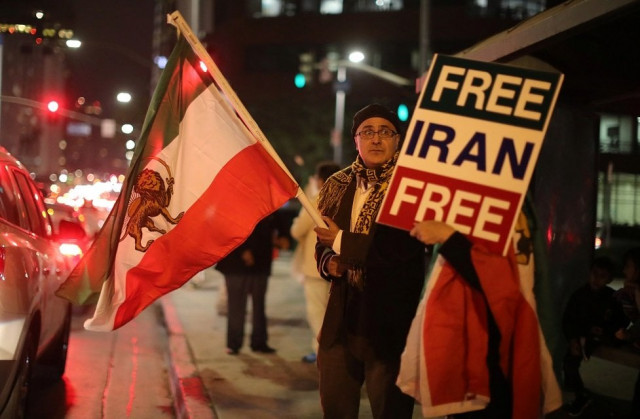
People protest in Los Angeles, California, US, in support of anti-government protesters in Iran, January 3, 2018.
PHOTO: REUTERS
A week after the demonstrations broke, there were no reports of fresh protests in local media overnight, while videos on social media suggested only limited unrest in provincial towns which could not be immediately verified.
As Washington suggested it may be looking to impose fresh sanctions on Tehran, Iranian authorities were weighing options including blocking unpopular measures in President Hassan Rouhani's recent budget.
Trump on Iran: 'Oppressive regimes cannot last forever'
State television showed huge crowds marching in support of the government across 10 cities early on Thursday, including Isfahan, Ardebil and Mashhad, where the protests first erupted last Thursday.
"We are together behind the leader," chanted the crowds, in reference to supreme leader Ayatollah Ali Khamenei.
"The revolutionary Iranian people have responded in time to the enemies and trouble-makers by coming out on the streets," Ali Akbar Velayati, an advisor to Khamenei, told the semi-official Iranian Students’ News Agency (ISNA).
"The people's main demand now is for the government and officials to deal with the economic problems," he added.
General Mohammad Ali Jafari, the head of Iran's powerful Revolutionary Guards, on Wednesday announced the "end of the sedition".
Trump says 'time for change' in Iran
A total of 21 people died in five days of unrest that began on December 28 as protests against economic grievances quickly turned against the regime as a whole, with attacks on government buildings and police stations.
Jafari told state television that "a large number of the troublemakers" were behind the unrest, saying many had been arrested and would face "firm action".
The unrest - the biggest challenge to Iran's Islamic regime since mass protests in 2009 - caused international concern, with the United States in particular accusing authorities of a crackdown on dissent.
A White House official, who asked for anonymity, said on Wednesday that Washington would look for "actionable information" to try to bring fresh sanctions on those responsible.
US President Donald Trump, who has repeatedly tweeted his backing for Iranian protesters, wrote: "You will see great support from the United States at the appropriate time!"
The question now is whether Trump will continue to waive nuclear-related sanctions that were suspended under the 2015 nuclear deal between Iran and world powers.
Under the deal, Trump must actively waive certain sanctions every few months and the next deadline falls on January 12.
Iran - which has long accused the United States and Sunni Arab rivals led by Saudi Arabia of interference in its affairs - said external "enemies" were behind recent unrest.
Iran says Telegram only unblocked if 'terrorist' content removed
Its UN Ambassador Gholamali Khoshroo said in a letter that the US government had "stepped up its acts of intervention in a grotesque way in Iran's internal affairs" and accused Washington of violating international law and the principles of the UN charter.
Online messaging and photo sharing platforms Telegram and Instagram remained blocked on mobile phones, having been interrupted soon after protests began.
Telecoms Minister Mohammad-Javad Azari Jahromi said Telegram would only be unblocked if it removed "terrorist" content.
Iran's political establishment has closed ranks against the unrest, with even reformists condemning the violence.
But many have also called on Rouhani to address the economic grievances that drove the initial protests.
There have already been moves in parliament to block the unpopular budget measures announced last month, which included cuts to welfare and fuel price hikes.
"As concerns petrol prices, we must absolutely take into account the situation of the people because the tensions are absolutely not in the interests of the country," parliament speaker Ali Larijani said on Wednesday.
UN chief urges Iranians to avoid violence as protests continue
Rouhani came to power in 2013 promising to mend the economy and ease social tensions, but high living costs and unemployment have left many feeling that progress is too slow.
Rural areas, hit by years of drought and under-investment, are particularly hard-hit.
On the streets of the capital, there is widespread sympathy with the economic grievances driving the unrest, particularly an unemployment rate as high as 40 per cent for young people.
"People have reached a stage where they can no longer tolerate this pressure from the authorities," said Soraya Saadaat, a 54-year-old jobless woman.
But some Tehranis said claims from the US that they were desperate for freedom were overblown.
"We do have some freedom in Iran," Hamid Rahimi, a 33-year-old bank employee told AFP.
"If the people of Iran have something to say, it's about economic problems. They want to see their demands, what they voted for, fulfilled."

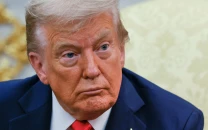

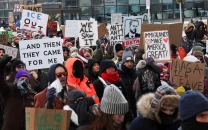

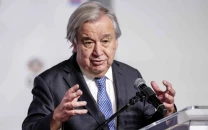
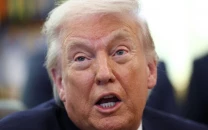












COMMENTS
Comments are moderated and generally will be posted if they are on-topic and not abusive.
For more information, please see our Comments FAQ